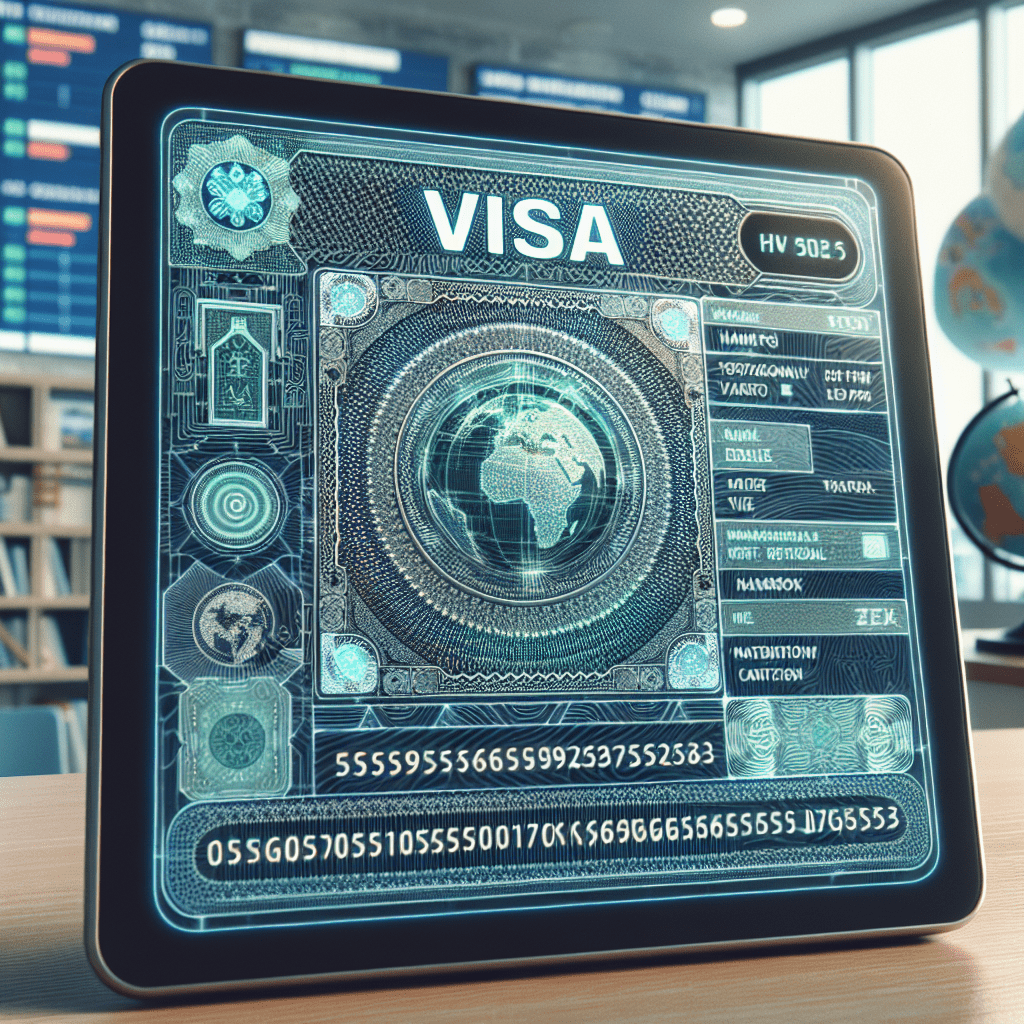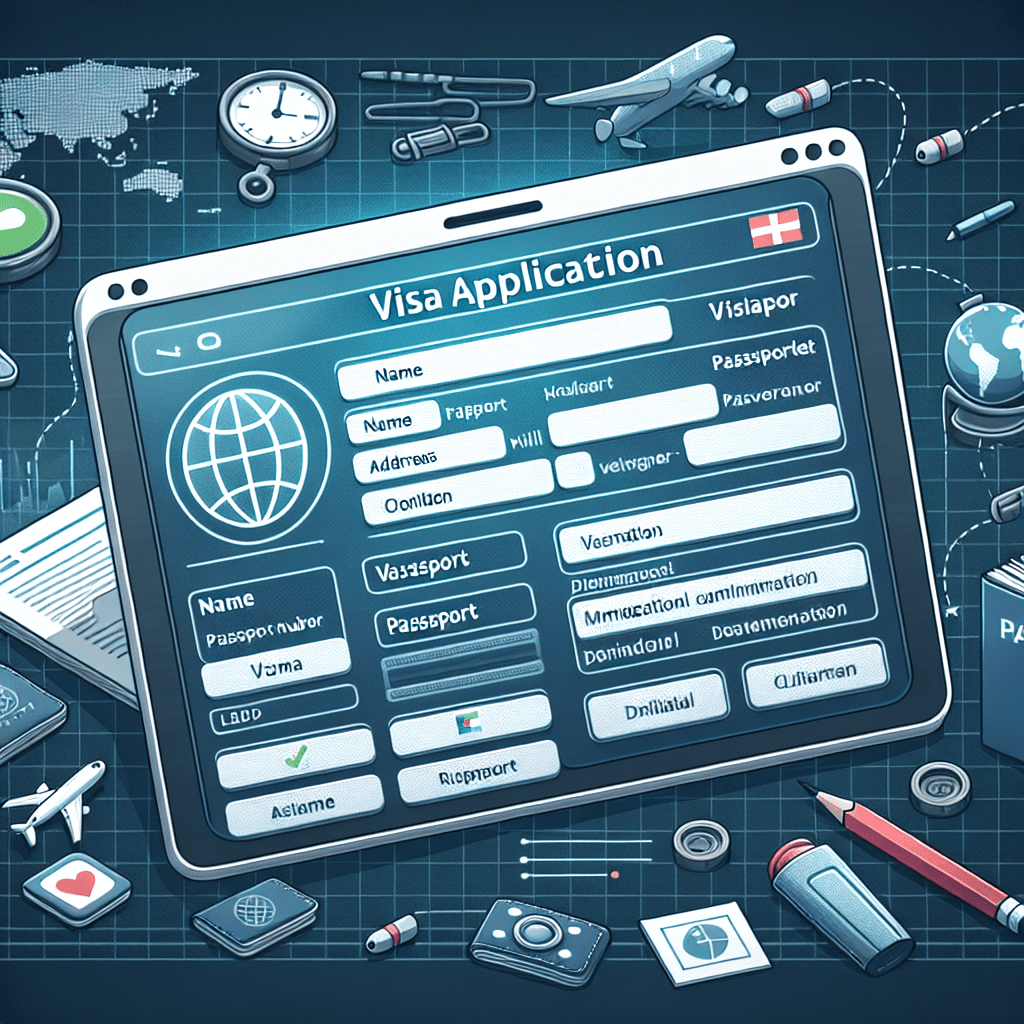Electronic Visa Success Stories: Real-Life Experiences

The increasing prevalence of electronic visas in global travel has revolutionized the way people cross borders. With the advent of online visa applications and digital travel authorizations, the process has become more streamlined, efficient, and accessible. Gone are the days of lengthy paperwork and long waits at embassies; now, travelers can obtain their electronic entry visas from the comfort of their homes. The benefits of electronic visas are numerous, including faster processing times, reduced paperwork, and enhanced security measures. Real-life experiences serve as powerful validation for the effectiveness and convenience of electronic visas. These stories highlight the ease with which travelers can navigate the electronic visa process, providing a sense of assurance for those considering this modern approach to travel documentation. By sharing these success stories, we aim to shed light on the practical advantages and positive impacts of digital visa applications, making it clear why more and more people are opting for this innovative solution.

Business Travelers’ Success Stories
Reduced Processing Time
One of the most significant advantages of electronic visas for business travelers is the reduced processing time. Take, for instance, the case of John, a frequent flyer who often travels between the United States and various countries in Asia for business meetings. Before the advent of e-visa processing, John had to endure long waits at embassies and consulates, often resulting in delays and missed opportunities. However, with the introduction of the online visa application system, John can now apply for his electronic travel permit in a matter of minutes. The streamlined process has allowed him to obtain multiple visas efficiently, ensuring that his business trips are never delayed by bureaucratic delays. The efficiency of obtaining multiple visas through a web-based visa system cannot be overstated. Business travelers like John can now manage their travel schedules more effectively, knowing that their visa applications will be processed swiftly. This has not only saved them valuable time but also reduced the stress associated with last-minute travel arrangements. The digital visa approval process has become a game-changer for frequent flyers, enabling them to focus on their business objectives rather than worrying about visa logistics.
Accessibility from Different Locations
Another compelling success story comes from Sarah, a business consultant who often finds herself traveling to different countries on short notice. The ability to apply for an electronic visa from virtually any location has been a game-changer for her. Whether she is in a hotel room in Paris or a coffee shop in Tokyo, Sarah can easily submit her online visa application without the need to return home. This level of accessibility has made it possible for her to seize business opportunities as they arise, without being constrained by geographical limitations. The convenience of not having to return home for visa applications is a significant advantage for business travelers. In the past, Sarah had to plan her trips meticulously, ensuring that she had enough time to visit embassies and consulates. Now, with the availability of internet visa services, she can apply for her electronic entry visa on the go. This flexibility has allowed her to be more responsive to her clients’ needs, enhancing her professional reputation and expanding her business network.
Improved Documentation Handling
The transition to electronic visas has also improved the way business travelers handle their documentation. For instance, Mark, an international sales executive, used to carry a folder filled with physical papers, including visa documents, travel itineraries, and business contracts. The risk of losing important documents or having them damaged during travel was always a concern. However, with the introduction of electronic visa forms and digital storage solutions, Mark can now store and retrieve all his travel documents electronically. The ability to avoid the hassle of physical papers has been a significant relief for business travelers like Mark. Electronic storage ensures that all necessary documents are easily accessible and securely stored. In case of any discrepancies or issues at immigration checkpoints, Mark can quickly retrieve his digital visa application and other relevant documents from his smartphone or laptop. This has not only streamlined his travel experience but also provided an added layer of security and peace of mind. In summary, the success stories of business travelers highlight the numerous benefits of electronic visas. From reduced processing times and increased accessibility to improved documentation handling, the digital travel authorization system has revolutionized the way business professionals navigate international travel. These real-life experiences serve as a testament to the efficiency and convenience of electronic visas, making them an indispensable tool for modern business travelers.

Tourist and Family Visits
Simplified Application Process
The simplified application process for electronic visas has been a boon for tourists and those visiting family members abroad. One of the most notable features is the user-friendly online visa application forms. Unlike traditional visa applications that often require a visit to an embassy and the submission of numerous documents, the digital visa application process is straightforward and can be completed from the comfort of one’s home. For example, Emily, a retiree planning to visit her grandchildren in Australia, found the online visa submission process incredibly easy to navigate. The clear instructions and intuitive interface allowed her to complete her application without any external assistance. Another advantage is the reduced number of document requirements compared to traditional visas. The electronic visa form typically asks for basic identification details and travel information, eliminating the need for extensive paperwork. This has made the process less daunting for many, especially for those who may not be tech-savvy. The ease of e-visa processing has encouraged more people to travel, knowing that they won’t be bogged down by complicated procedures. This streamlined approach has made international travel more accessible to a broader audience, fostering a more connected world.
Enhanced Travel Plans Flexibility
The flexibility offered by electronic visas has significantly enhanced travel planning for tourists. One of the most appreciated benefits is the ability to make last-minute travel arrangements. For instance, David and Lisa, a couple from New York, decided on a whim to spend their anniversary in Paris. Thanks to the internet visa service, they were able to apply for and receive their electronic travel permits within a few days. This spontaneity would have been impossible with traditional visa processes that often require weeks of waiting. The ability to travel during peak seasons is another significant advantage. Traditional visa applications can be time-consuming, often leading to missed opportunities during holidays or special events. With the digital travel authorization system, travelers can plan their trips around their schedules rather than the other way around. This has been particularly beneficial for families looking to reunite during festive seasons. The convenience of the e-visa platform has made it easier for people to visit their loved ones without the stress of lengthy visa procedures.
Personal Experiences of Family Reunions
The emotional impact of seamless travel arrangements facilitated by electronic visas cannot be overstated. Take the story of Maria, who hadn’t seen her parents in over five years due to the complexities of traditional visa applications. With the introduction of the online immigration visa system, Maria was able to apply for her electronic entry visa quickly and without hassle. The joy of reuniting with her family was immeasurable, and the ease of the process made the experience even more special. Stories like Maria’s are not uncommon. Many people have shared their experiences of visiting loved ones, made possible by the efficient e-visa processing system. The ability to submit a virtual visa request and receive digital visa approval has removed significant barriers to family reunions. These personal stories highlight the profound emotional benefits of electronic visas, making it easier for people to maintain close relationships despite geographical distances. In conclusion, the success stories of tourists and family visitors underscore the transformative impact of electronic visas. From simplified application processes and enhanced travel flexibility to the emotional joy of family reunions, the digital visa system has made international travel more accessible and enjoyable. These real-life experiences serve as compelling evidence of the advantages of electronic visas, encouraging more people to embrace this modern approach to travel documentation.

Student and Work Visas
Streamlined Procedures for International Students
The streamlined procedures for obtaining student visas have made a significant impact on the lives of international students. For instance, consider the experience of Alex, a student from Brazil who was accepted into a prestigious university in the United States. The traditional visa application process would have required multiple visits to the embassy, extensive paperwork, and a long waiting period. However, with the advent of the online visa application system, Alex was able to complete his digital visa application quickly and efficiently. The user-friendly electronic visa form and the ability to submit documents online made the entire process less cumbersome. The reduction in pre-departure stress is another notable benefit. International students often face numerous challenges when preparing to study abroad, from securing accommodation to arranging finances. The simplified e-visa processing has alleviated one major source of anxiety. By obtaining their electronic travel permits through a web-based visa system, students can focus more on their academic preparations and less on bureaucratic hurdles. This has led to a more positive start to their educational journey, setting the stage for a successful academic experience.
Professional Opportunities
The rise of digital travel authorization has opened up a world of professional opportunities for digital nomads and freelancers. Take the example of Emma, a freelance graphic designer from Canada who works with clients around the globe. The ability to apply for an electronic entry visa from anywhere has enabled her to travel to different countries for work without the hassle of traditional visa applications. The convenience of the internet visa service has allowed Emma to expand her client base and take on projects that require her physical presence in different locations. Access to the global job market has never been easier. Professionals can now apply for work visas through an e-visa platform, making it simpler to pursue career opportunities abroad. The digital visa approval process is faster and more efficient, allowing job seekers to respond quickly to job offers and relocate without unnecessary delays. This has been particularly beneficial for industries that require rapid deployment of talent, such as technology and consulting. The ability to submit a virtual visa request and receive prompt approval has made international career moves more feasible and attractive.
Success Stories from Scholarship Recipients
Scholarship recipients have also benefited immensely from the electronic visa system. Consider the story of Priya, a student from India who received a scholarship to attend a renowned university in Europe. The process of obtaining her educational visa was straightforward and stress-free, thanks to the online immigration visa system. The ability to complete her online visa submission without the need for physical visits to the embassy allowed Priya to focus on her academic preparations and make the most of her scholarship opportunity. The ease of attending international conferences is another significant advantage. For instance, Ahmed, a PhD student from Egypt, was invited to present his research at a conference in Japan. The traditional visa application process would have been time-consuming and potentially jeopardized his participation. However, with the digital travel authorization system, Ahmed was able to obtain his electronic travel permit quickly, ensuring his attendance at the conference. This not only enhanced his academic profile but also provided valuable networking opportunities. In conclusion, the success stories of students and professionals highlight the transformative impact of electronic visas. From streamlined procedures for international students and expanded professional opportunities to the success of scholarship recipients, the digital visa system has made global mobility more accessible and efficient. These real-life experiences underscore the numerous benefits of electronic visas, encouraging more people to embrace this modern approach to travel and work documentation.

Conclusion
The overall benefits observed from various real-life experiences with electronic visas are both compelling and transformative. Business travelers have lauded the reduced processing times and the ability to manage multiple visas efficiently, which has significantly streamlined their international travel. The convenience of applying for visas from different locations has allowed them to seize business opportunities without geographical constraints. Tourists and family visitors have found the simplified application process and enhanced travel flexibility to be game-changers, enabling last-minute travel plans and making family reunions more accessible. For students and professionals, the streamlined procedures for obtaining student and work visas have opened up new educational and career opportunities, reducing pre-departure stress and facilitating global mobility. These success stories collectively highlight the profound impact of electronic visas on various aspects of travel and work. The ease of online visa applications, the efficiency of digital travel authorizations, and the security of electronic entry visas have made international travel more accessible and less stressful. The ability to store and retrieve documents electronically has further enhanced the travel experience, providing peace of mind and reducing the risk of lost or damaged paperwork. Overall, the adoption of electronic visas has led to a more connected and mobile world, where people can pursue their personal and professional goals with greater ease. Looking ahead, the future prospects for electronic visas are promising. As more countries adopt and refine their e-visa platforms, the process will become even more efficient and user-friendly. Innovations in technology, such as biometric verification and blockchain, could further enhance the security and reliability of digital visa applications. The continued adoption of electronic visas is likely to drive greater global mobility, enabling more people to travel, work, and study abroad. This will not only benefit individuals but also foster greater cultural exchange and economic collaboration on a global scale. The success stories shared in this article serve as a testament to the transformative power of electronic visas. As the world becomes increasingly interconnected, the demand for efficient and accessible travel documentation will continue to grow. By embracing the digital visa system, countries can facilitate smoother and more secure international travel, benefiting travelers and host nations alike. The future of electronic visas is bright, and their continued adoption will undoubtedly play a crucial role in shaping the future of global mobility.